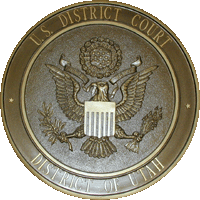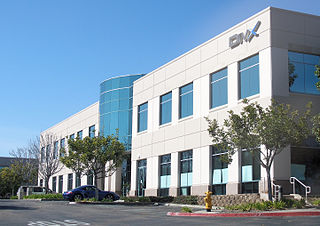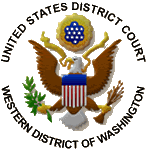
A license (US) or licence (Commonwealth) is an official permission or permit to do, use, or own something.
A royalty payment is a payment made by one party to another that owns a particular asset, for the right to ongoing use of that asset. Royalties are typically agreed upon as a percentage of gross or net revenues derived from the use of an asset or a fixed price per unit sold of an item of such, but there are also other modes and metrics of compensation. A royalty interest is the right to collect a stream of future royalty payments.
The first-sale doctrine is an American legal concept that limits the rights of an intellectual property owner to control resale of products embodying its intellectual property. The doctrine enables the distribution chain of copyrighted products, library lending, giving, video rentals and secondary markets for copyrighted works. In trademark law, this same doctrine enables reselling of trademarked products after the trademark holder puts the products on the market. In the case of patented products, the doctrine allows resale of patented products without any control from the patent holder. The first sale doctrine does not apply to patented processes, which are instead governed by the patent exhaustion doctrine.
Software copyright is the application of copyright in law to machine-readable software. While many of the legal principles and policy debates concerning software copyright have close parallels in other domains of copyright law, there are a number of distinctive issues that arise with software. This article primarily focuses on topics particular to software.
Reasonable and non-discriminatory (RAND) terms, also known as fair, reasonable, and non-discriminatory (FRAND) terms, denote a voluntary licensing commitment that standards organizations often request from the owner of an intellectual property right that is, or may become, essential to practice a technical standard. Put differently, a F/RAND commitment is a voluntary agreement between the standard-setting organization and the holder of standard-essential patents. U.S. courts, as well as courts in other jurisdictions, have found that, in appropriate circumstances, the implementer of a standard—that is, a firm or entity that uses a standard to render a service or manufacture a product—is an intended third-party beneficiary of the FRAND agreement, and, as such, is entitled to certain rights conferred by that agreement.
A hire purchase (HP), also known as an installment plan, is an arrangement whereby a customer agrees to a contract to acquire an asset by paying an initial installment and repaying the balance of the price of the asset plus interest over a period of time. Other analogous practices are described as closed-end leasing or rent to own.
Commercial software, or seldom payware, is a computer software that is produced for sale or that serves commercial purposes. Commercial software can be proprietary software or free and open-source software.
A software license is a legal instrument governing the use or redistribution of software. Under United States copyright law, all software is copyright protected, in both source code and object code forms, unless that software was developed by the United States Government, in which case it cannot be copyrighted. Authors of copyrighted software can donate their software to the public domain, in which case it is also not covered by copyright and, as a result, cannot be licensed.

SCO v. Novell was a United States lawsuit in which the software company The SCO Group (SCO), claimed ownership of the source code for the Unix operating system. SCO sought to have the court declare that SCO owned the rights to the Unix code, including the copyrights, and that Novell had committed slander of title by asserting a rival claim to ownership of the Unix copyrights. Separately, SCO was attempting to collect license fees from Linux end-users for Unix code through their SCOsource division, and Novell's rival ownership claim was a direct challenge to this initiative. Novell had been increasing their investments in and support of Linux at this time, and was opposed to SCO's attempts to collect license fees from Novell's potential customers.

DivX, Inc. is a privately held video technology company based in San Diego, California. DivX, LLC is best known as a producer of three codecs: an MPEG-4 Part 2-based codec, the H.264/MPEG-4 AVC DivX Plus codec and the High Efficiency Video Coding DivX HEVC Ultra HD codec. The company's software has been downloaded over 1 billion times since January 2003. DivX, LLC's offerings have expanded beyond the codec to include software for viewing and authoring DivX-encoded video. DivX, LLC also licenses its technologies to manufacturers of consumer electronics devices and components used in these devices, of which over 1 billion DivX-enabled devices have shipped worldwide. DivX certifies that these licensed products are able to properly play DivX-encoded video.
SoftMan Products Co. v. Adobe Systems Inc. was a lawsuit heard in the U.S. District Court for the Central District of California in 2001 by Judge Dean D. Pregerson.
In software licensing, volume licensing is the practice of using one license to authorize software on a large number of computers and/or for a large number of users. Customers of such licensing schemes are typically business, governmental or educational institutions, with prices for volume licensing varying depending on the type, quantity and applicable subscription-term. For example, Microsoft software available through volume-licensing programs includes Microsoft Windows and Microsoft Office.
The DAK Catalog was published by DAK Industries, a discount electronics importer in the United States, and was named after the initials of the company's owner, Drew Alan Kaplan.

Universal Music Group v. Augusto was a federal court case filed by Universal Music Group against Troy Augusto, a man who sold promotional CDs on eBay. UMG claimed that the CDs were their property, and Augusto's sales constituted copyright infringement. On January 4, 2011, the Ninth Circuit sided with Augusto, holding that "UMG's distribution of the promotional CDs under the circumstances effected a sale of the CDs to the recipients. Further sale of those copies was therefore permissible without UMG's authorization."
Proprietary software is software that, according to the free and open-source software community, grants its creator, publisher, or other rightsholder or rightsholder partner a legal monopoly by modern copyright and intellectual property law to exclude the recipient from freely sharing the software or modifying it, and—in some cases, as is the case with some patent-encumbered and EULA-bound software—from making use of the software on their own, thereby restricting their freedoms.
The bundling of Microsoft Windows is the installation of Microsoft Windows in computers before their purchase. Microsoft encourages original equipment manufacturers (OEMs) of personal computers to include Windows licenses with their products, and agreements between Microsoft and OEMs have undergone antitrust scrutiny. Users opposed to the bundling of Microsoft Windows, including Linux users, have sought refunds for Windows licenses, arguing that the Windows end-user license agreement entitles them to return unused Windows licenses for a cash refund. Although some customers have successfully obtained payments, others have been less successful.

Microsoft Corp. v. Harmony Comps. & Elecs., Inc., 846 F. Supp. 208, was an Eastern New York District Court decision regarding copyright infringement and breach of license agreement. Microsoft Corp. filed the lawsuit against Harmony Comps. & Elecs., Inc. and its president, Stanley Furst, seeking declaratory and injunctive relief and treble damages. The defendants did not contest the plaintiff's claim that Harmony sold Microsoft's products without any licenses or authorization, or that they sold Microsoft's products stand-alone, which violated Microsoft's license agreement. Instead, the defendants argued that their action was protected by the first-sale doctrine 17 U.S.C §109(a) (1977). After reviewing the facts, the court found that the defendants' action constituted copyright infringement, and that the first-sale doctrine did not apply since the defendants failed to prove that the Microsoft products they sold were lawfully acquired. The court also ruled that the defendants breached Microsoft's software license agreement by selling the products stand-alone.

Vernor v. Autodesk, Inc. was a case in the United States District Court for the Western District of Washington regarding the applicability of the first-sale doctrine to software sold under the terms of so-called "shrinkwrap licensing." The court held that when the transfer of software to the purchaser materially resembled a sale it was, in fact, a "sale with restrictions on use" giving rise to a right to resell the copy under the first-sale doctrine. As such, Autodesk could not pursue an action for copyright infringement against Vernor, who sought to resell used versions of its software on eBay. The decision was appealed to the United States Court of Appeals for the Ninth Circuit, which issued a decision on September 10, 2010, reversing the first-sale doctrine ruling and remanding for further proceedings on the misuse of copyright claim. The Ninth Circuit's decision asserted that its ruling was compelled by Ninth Circuit precedent, but observed that the policy considerations involved in the case might affect motion pictures and libraries as well as sales of used software.

F.B.T. Productions, LLC, et al. v. Aftermath Records, et al. 621 F.3d 958 was a case in which the United States Court of Appeals for the Ninth Circuit dealt with how Federal Copyright Law applied to the sales and licensing contracts of music downloads and other downloadable copyrighted material. Specifically, the circuit court ruled that a licensing provision in the contract between F.B.T. Productions and Aftermath Records unambiguously applied to permanent downloads and mastertones offered through third party distributors. After reviewing the First Sale Doctrine and the nature of Aftermath's contracts with its distributors, the circuit court concluded that such downloads constituted a licensing of copyrights rather than a sale, causing Aftermath to pay higher royalties to F.B.T. under their agreement.
Bagdasarian Productions is an American production company founded by Ross Bagdasarian Sr. on February 20, 1961. The company holds the rights to Alvin and the Chipmunks and related intellectual property assets. The company is currently owned and operated in by Ross Bagdasarian Jr. and Janice Karman. The company has co-produced many television series, specials, and films and initiated multiple lawsuits to protect the characters.






